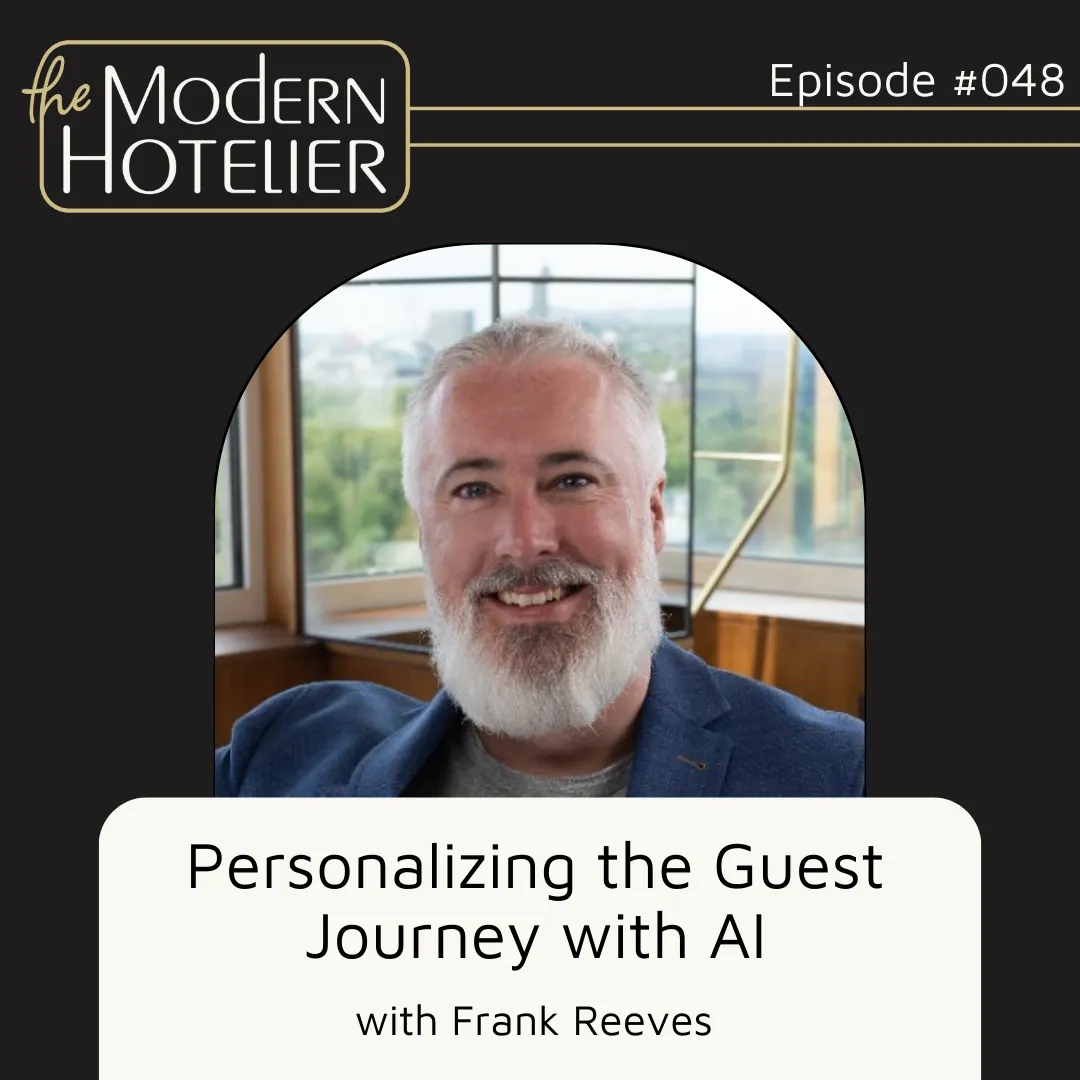Today, our guest is Frank Reeves, the Co-Founder & CEO of Avvio, which recently merged with the SHR group. He is more than a tad obsessed with delivering innovative technologies and new distribution networks to grow direct bookings for hotels. Frank’s unwavering focus on innovation led him to build the hospitality industry's first fully guest-centric booking platform powered by artificial intelligence, called Allora, in October 2017. Allora now serves hoteliers with multiple skills, including Machine Learning, Recommender Engine, Chatbot functionality, and Networked Intelligence.
In this episode, we talk about how technology can help hoteliers stay ahead and how the harnessing of AI can give them a competitive advantage.
In this episode, you'll learn about:
- Building the world's first AI-powered booking platform
- Why traditional KPI's are dead and what you should be tracking instead.
- The merging of Avvio with the SHR Group
- Building your website and digital experience with the understanding that the guest journey takes time.
Join the conversation on today's episode on The Modern Hotelier LinkedIn page.
This Episode is Sponsored by SHR Group: https://shrgroup.com/
The Modern Hotelier is produced, edited, and published by Make More Media: https://makemore.media/
Episode Links
Frank Reeves
David Millili
Steve Carran
Steve on LinkedIn
The Modern Hotelier
Transcript
Automatic Transcription - please excuse any errors

